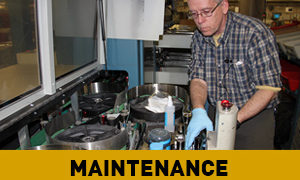Common Contractual Violations
By Greg Becker, South Sectional Director
“…take good notes on who is performing clerk work, what was done for how long and contact me or your steward as soon as possible.”
I would like to thank all the members for the help I have received at each Associate Office in my area. Together, we have created a climate where management must comply with the contract or risk a grievance. My goal is to give each member the information that allows each of you to know when your contractual rights are being violated. I have touched on some of these common violations of the contract in past articles or reports, but many bare repeating.
ARTICLE 7.2
This is one of the most common violations I grieve at the Associate Offices, commonly known as a Cross-Craft violation. Management has cut jobs at many A.O.’s over the years, and because of this, frequently finds themselves understaffed and unable to get the mail to the carriers on time. Instead of posting a Duty assignment or hiring a PSE, management will instead direct Carrier Craft employees to perform distribution. “Distribution” is almost always Clerk Craft work and cannot be performed by other crafts outside the language in Article 7.2.
Furthermore, Carrier craft personnel cannot perform distribution of mis-sorts when there are route adjustments in lieu of giving the Clerks the required scheme training on the changes in carrier routes so that mis-sorts can avoided. Just as other crafts cannot work the “window”, other crafts cannot perform distribution at the A. O.’s. This includes Rural Carriers, also. If this violation occurs at your Associate office, take good notes on who is performing clerk work, what was done for how long and contact me or your steward as soon as possible.
ARTICLE 1.6
This violation is similar to a Cross-Craft violation. However, this violation occurs when someone in management or a 204-b supervisor performs Clerk craft work outside the exclusions in Article 1.6. This language applies at offices level 20 and above and Level 6 & 4 RMPO’s staffed by Clerks.
Per the Goldberg award of 2014 and the “Global Settlement” (Arbitration Q06C-4Q-C 10005587), management can perform up to 15 hours per week of Clerk work at a Level 18 office and staff a level 2 RMPO with non-bargaining unit personnel.
At all other offices in the South Sectional area of representation, if management works the “window” or performs other Clerk Craft work, this is very likely a violation of Article 1.6.
If you observe supervisors, Postmasters, or 204-b’s performing Clerk work, take good notes and contact me or your steward as soon as possible.
ARTICLE 8
This Article is titled “Hours of Work” and includes overtime. Many times the Union is not made aware unless the aggrieved Clerk notifies the Union. In order to enforce the overtime rules, we must first make sure that management allows full-time regular Clerks to place their name on a quarterly overtime desired list (O.T.D.L) two weeks prior to each quarter. Management must then normally utilize quarterly O.T.D.L Clerks up to the 12/60 hour caps prior to utilizing Non-O.T.D.L Clerks.
Furthermore, prior to utilizing a PSE in excess of 8 hours in a service day, such qualified and available full-time clerks on the O.T.D.L. will be selected to perform such work in order of their seniority on a rotating basis.
Another contractual rule recently amended by Arbitrator Goldberg is that management cannot utilize non-O.T.D.L for overtime if there are Non-traditional Duty Assignments (NTFT) of less than 40 hours in the facility…except in an emergency. And Clerks who occupy NTFT duty assignments on days in which your regular schedule is less than 8 hours, you are considered unavailable for overtime (even if you are an O.T.D.L Clerk). Clerks who are non-O.T.D.L. and work at a facility with NTFT Duty Assignments are unavailable to work overtime, except in an emergency. An emergency is defined in the contract to mean just as one would believe, i.e.,” an unforeseen circumstance or a combination of circumstances which calls for immediate action in a situation which is not expected to be of a recurring nature.” Delayed or late mail and the month of December are all foreseen circumstances that do not need immediate action. Keep in mind that the overtime caps are lifted and penalty pay is waived in the month of December, but the other overtime rules are in effect all year.
In closing, these are some of the contractual Articles that have been frequently violated in the last 2 years. Many Clerks have contacted me when they feel that management has violated the contract, and these Clerks have been compensated when the contract is violated. I hope that I have clarified some of the most common violations that occur at the South Sectional A.O.’s. Contact me if you have any questions.
I would like to thank all the members for the help I have received at each Associate Office in my area. Together, we have created a climate where management must comply with the contract or risk a grievance. My goal is to give each member the information that allows each of you to know when your contractual rights are being violated. I have touched on some of these common violations of the contract in past articles or reports, but many bare repeating.



